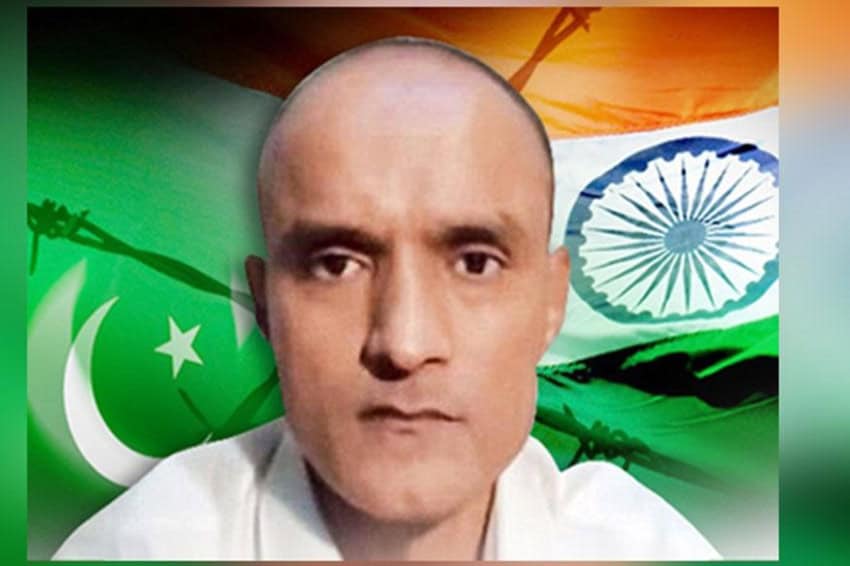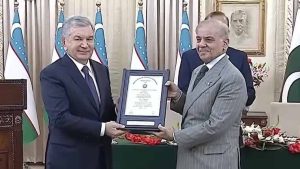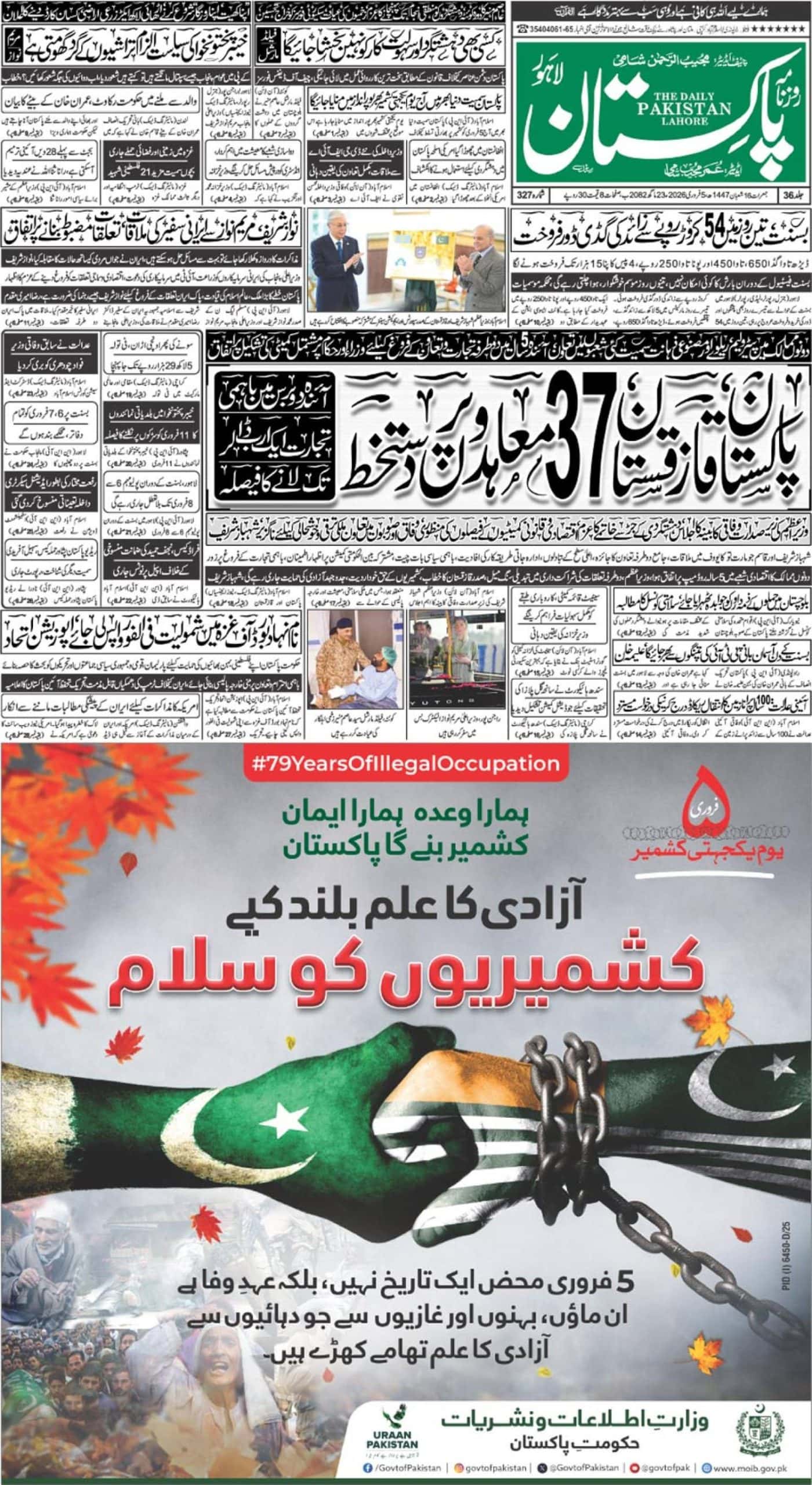ISLAMABAD: The International Court of Justice (ICJ) has reserved its judgement on India’s appeal for a provisional stay on the execution of one of its citizens Kulbhushan Jadhav, who was convicted of espionage and sentenced to death by Pakistan.
The move came after Pakistan’s lawyer Khawar Quraishi presented his arguments on Monday. Among other things, Quraishi argued over the jurisdiction of the court to hear a case of this nature.
New Delhi asked the ICJ judges on Monday to order Islamabad to stay the execution of the spy, a case that has escalated tensions between the two nuclear-armed neighbours.
India argued in a preliminary hearing at the UN court, formally known as the ICJ, that Pakistan had violated the Vienna Convention on Consular Relations by denying the condemned man access to legal and other assistance from India.
Monday’s hearings focused on India’s request for so-called “provisional measures” that can be granted at short notice to ensure a dispute between states does not deteriorate during full ICJ proceedings, which typically take several years.
At the core of the dispute is the fate of Kulbhushan Sudhir Jadhav, an Indian former naval officer who was arrested in March 2016 in Balochistan. There has been a long-running conflict in Balochistan between security forces and a militant separatist movement.
According to Islamabad, Jadhav confessed to being tasked by India’s intelligence service with planning, coordinating and organising espionage and sabotage activities in Balochistan “aiming to destabilise and wage war against Pakistan”.
In April, a Pakistani military court sentenced him to death. No date was set for the execution. Pakistan has said Jadhav’s conviction and sentence remain open to appeal. India’s representative at the ICJ hearing, Deepak Mittal, described the charges against Jadhav as “concocted” and his trial as “farcical.”
The ICJ is the UN court for resolving disputes between nations, and its decisions are final and binding. However, it has no means to enforce rulings and they have occasionally been ignored.
In a similar dispute over the Vienna Convention in 1999, the ICJ ordered the United States not to execute a German national who did not get proper consular assistance, but the man was put to death regardless.
After a 2004 ruling against the United States in a case brought by Mexico, the administration of then-President George W Bush ordered reviews of dozens of cases of Mexicans on US death row who had not been offered consular access as a remedy.
The US Supreme Court later ruled that under the US federal system, individual states are not obliged to comply with the international treaty, a contradiction that has yet to be resolved.
Earlier, one of its top diplomats while presenting Islamabad’s stance on death sentence handed to Kulbhushan Jadhav said that Pakistan will not be cowed down by terrorists and will utilise all legal means to safeguard its people and soil.
“Kulbhushan Jadhav confessed to having conspired to fan terrorism inside Pakistan, while the passport he was found in possession of bore a Muslim name,” said DG South Asia and SAARC, Dr. Muhammad Faisal, while presenting Pakistan stance in the ICJ.

Jadhav, a RAW operative and on-duty Indian navy officer, was apprehended from Balochistan as a result of a counter-intelligence operation in March 2016. The ICJ was also shown a copy of the passport seized from Jadhav at the time of his arrest.
“The court can see the passport bore a Muslim name and the copy of which was also provided to Indian authorities, but New Delhi has been unable to provide an explanation of it,” the Pakistani diplomat said.
Dr. Faisal was followed by Pakistan’s counsel in the case, Khawar Qureshi, who is currently presenting his arguments in the case.
The hearing into India’s petition demanding to stay of Pakistan’s death sentence to RAW agent Kulbhushan Jadhav is currently under way in the ICJ.
Moreover, joint secretaries at the Indian External Affairs Ministry, Dr Deepak Mittal, Dr VD Sharma, and Indian counsel Harish Salve completed their statements before the judges.
The Indian side focused on expressing its reservations over the fairness of Jadhav’s trial in Pakistan by an army court as well as a lack of mercy shown by the Pakistani side, saying the jailed Indian national was not allowed to meet his mother.
The Indian delegation comprised five members whereas the Pakistani side consists of six individuals, including a European lawyer and members of the diplomatic corps.
Meanwhile, senior Pakistani government officials stated that the incarcerated RAW agent’s confession of involvement in sabotage and espionage activities inside Pakistan is the crux of Islamabad’s case. Moreover, Pakistani legal experts are of the view that India’s case at the global legal tribunal is weak.
Jadhav, in his confessional statement, had admitted to funding sabotage activities in Balochistan.
Criticising India’s designs to cloud the issue, officials said Pakistan’s legal team will lay bare India’s bogus claims regarding the Jadhav case in front of the international court.
Sources also said that India had four months to prepare its case in the global court whereas Pakistan had to prepare its arguments in a couple of days owing to New Delhi’s surprise move to approach the ICJ.
On May 9, New Delhi instituted proceedings in the ICJ over Jadhav’s sentencing to death in Pakistan earlier this year.
Jadhav alias Hussein Mubarak Patel was arrested on March 3, 2016 in a ‘Counter-Intelligence Operation’ from Mashkel area of Balochistan over his involvement in espionage and sabotage actives in Pakistan.
According to a press release on May 9 from ICJ, India requested the United Nations’ judicial organ to provide relief “by way of immediate suspension of the sentence of death awarded to the accused”.
A later press release from the ICJ stated that on May 15, it will hear India’s observations in the first session and that of Pakistan in the second session.
The hearing is being streamed live and on demand (VOD) on the ICJ’s website, as well as on the United Nations online television.
India has contended that it was not granted consular access to Jadhav, terming it a violation of the Vienna Convention on Consular Relations. India has also claimed that it learned about the death sentence by way of a press release from Pakistan.
On April 10, Jadhav was awarded a death sentence by a Field General Court Martial under the Pakistan Army Act for espionage and sabotage. Army Chief General Qamar Javed Bajwa ratified Jadhav’s sentencing by the army tribunal.













